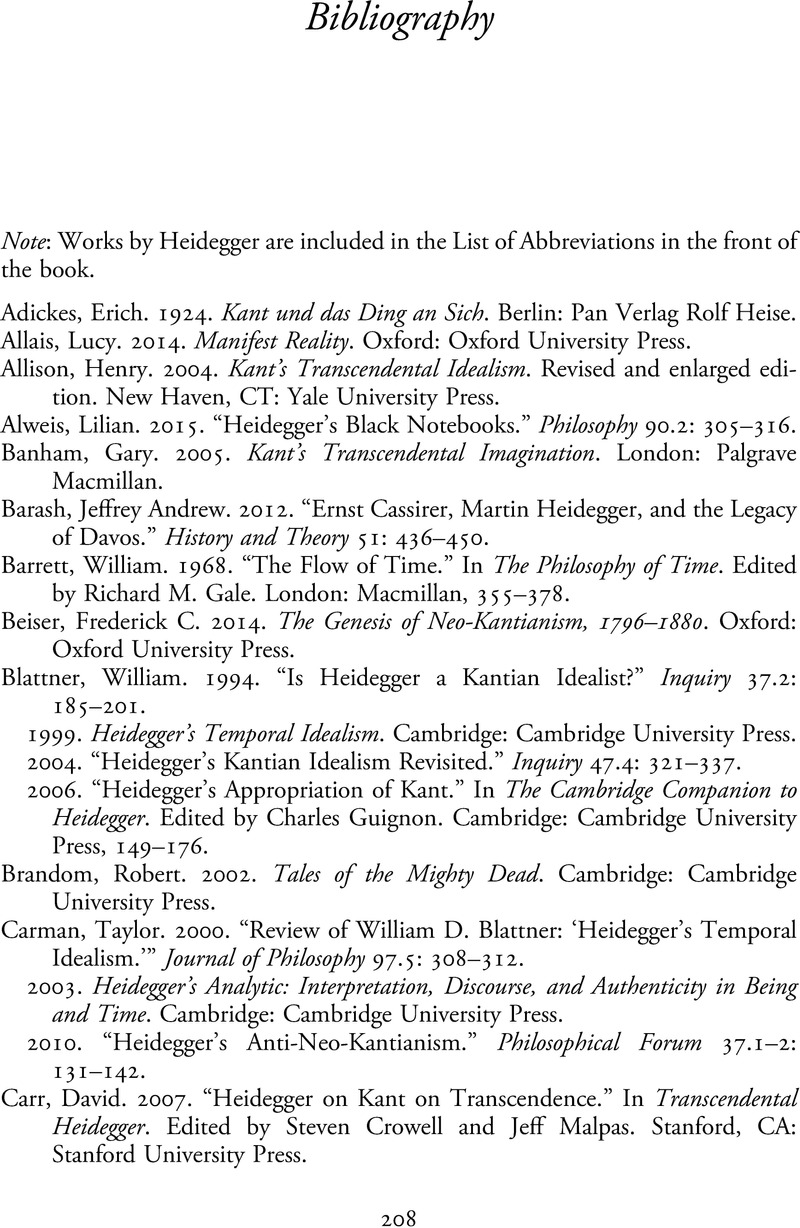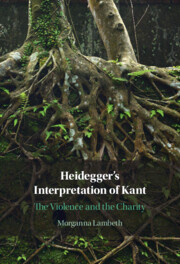Book contents
- Heidegger’s Interpretation of Kant
- Heidegger’s Interpretation of Kant
- Copyright page
- Dedication
- Contents
- Acknowledgments
- Abbreviations
- Introduction
- Chapter 1 The Two-Strand Method of Interpreting Kant
- Chapter 2 The Receptivity and Spontaneity of Cognition
- Chapter 3 A Common Root
- Chapter 4 The Metaphysical Deduction and Schematism
- Chapter 5 The Transcendental Deduction
- Chapter 6 The Form of Time and Self-Affection
- Conclusion
- Coda
- Bibliography
- Index
- References
Bibliography
Published online by Cambridge University Press: 01 June 2023
- Heidegger’s Interpretation of Kant
- Heidegger’s Interpretation of Kant
- Copyright page
- Dedication
- Contents
- Acknowledgments
- Abbreviations
- Introduction
- Chapter 1 The Two-Strand Method of Interpreting Kant
- Chapter 2 The Receptivity and Spontaneity of Cognition
- Chapter 3 A Common Root
- Chapter 4 The Metaphysical Deduction and Schematism
- Chapter 5 The Transcendental Deduction
- Chapter 6 The Form of Time and Self-Affection
- Conclusion
- Coda
- Bibliography
- Index
- References
Summary

- Type
- Chapter
- Information
- Heidegger's Interpretation of KantThe Violence and the Charity, pp. 208 - 213Publisher: Cambridge University PressPrint publication year: 2023



